When Arjuna questioned Lord Krishna, the Paramathma!
Posted [relativedate] at [relativetime time_format=”H:i”]
Preface:
I made an attempt to introduce the concept of ‘God is in everyone’ and how a ‘Thought’ can be perceived as God before explaining the fragile relationship everyone has with God. Talking from a metaphysical realm, the Almighty has always been with us. He is our silent partner, our philosopher, our guide, our teacher and our well-wisher. Unlike humans who use language for communication, God communicates to us through our inner-self, our soul. Energy is the medium through which he grants us the enlightenment.
One needs to attain higher levels of energy, to feel the Paramathma as a part of one’s own Atma. The quest for truths can lead us to a point where everything seems like an illusion. It is at that point, the Almighty showcases himself in his true form. When one is on a quest for the real truths, he/she is surely devoid of factual forms of life, and threads of life. The journey through the world of Spiritualism surely introduces us to higher levels of energy.
One has to have the ability to ‘accept’ many illusionary truths on their path to recognize the existence of God within them. God doesn’t need our trust, but we need to trust him to feel him within us. We need to have faith in him, to see him walking with us. Let us not go too far by talking about Salvation, rather let’s limit us to understand and accept that the Paramathma has always been with us.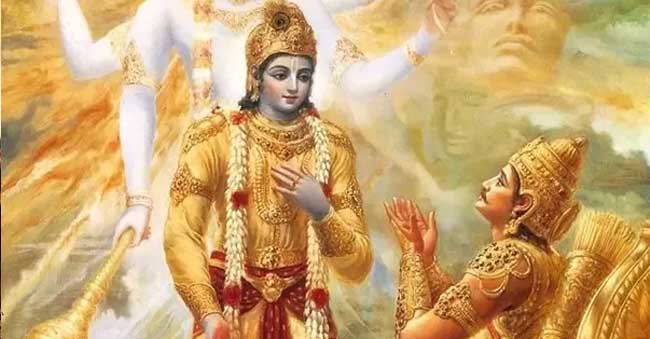
God is within you!
The Hindu mythology, scriptures and everything related to it would be incomplete without the mention of Lord Krishna, aka Paramathma. You are drawn to the mystic figure, the majestic icon and the mesmerizing character in Hindutva. Before addressing the title of this article, a clear mind about Paramathma is most essential. Most of the people (both the followers and non-followers) of Hindutva has this question; Do we have crores of Gods? If so how? Is it possible?
The answer is, ‘God is one. The almighty, Paramathma, the eternal soul!’ he is the only one. In Hindutva, the followers are not governed by any strict rules or commandments to follow. It’s because Hindutva is not a religion. It is indeed a ‘set of beliefs’ followed by large masses, in hundreds of millions. When people say, ‘they changed to other religion from Hinduism,’ it really amazes me. There doesn’t exist any religion called Hinduism. It’s Hindutva that preaches and pledges the Sanathana Dharma.
Coming to our context, Hindutva strongly believes that everything is the creation of the Almighty, which includes our human beings. Talking on a spiritual note, one needs to come out of the realm of the conscious world. One needs to set for a journey deeper into one’s own self. There is more life in the dark waters than the waters that see the light. According to Hindutva, God is omnipresent, in all literal sense. God is within you, within me, within everything. The physical body is a mere cover that helps us in attaining higher levels of spiritualism. Though God is within us, we still commit sins, commit unlawful acts, and walk in the path of adharma. So where is a God? Why isn’t God stopping us from doing such evil acts? Is God a myth? DoesGod exist?
Answers to these questions are not found anywhere, except within one’s own self.The reason for people to commit sins and unlawful acts despite the presence of Paramathma in them is because of the barriers existing between their conscious mind and the inner-self. Arrogance, Greed, anger, selfishness, cunningness, and everything that invokes negativity are nothing but barriers between the realms. With each day, knowingly or unknowingly, people distance themselves from their inner-self. Every action they take is often attributed to ‘Karma’, which is known to take its effect in their present birth and future incarnations. The concept of incarnation is highly limited to Hinduism (as they call it) and Buddhism in the modern world.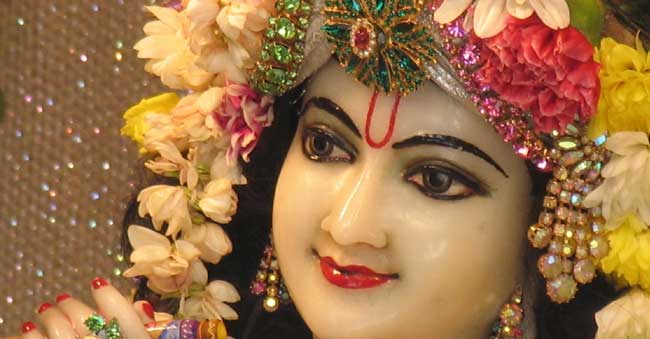
Thought – A form of God!
I was an atheist who believed that helping someone in need is more precious than anything else. As an atheist, my mind was always filled with calculations, theorems, physics principles.
It was during my early 20’s I started to discover more about God from a spiritual perspective. Let’s take a simple example of a train approaching the station. I would be busy calculating how much time does the train take to stop. And how long will it make the halt and by what time it will reach its destination? In the midst of all these, I forget to realize that, my calculations are dependent on the pilot who is in-charge of the locomotive.
But where is God in our discussion? God is there all the while. He is the creator, destroyer and the one who governs us. He is the thought that arises in our inner-soul. He is with us in the form of dharma, and he is with us guiding us towards the path of righteousness.
Idol Worship and its true essence
The form of God has been subject to debate to great extremes in Hinduism. In Islam, they believe that humans are in no position to give God a shape, color or even gender. Then why do Hindus pray to Gods who have a shape and gender? Does Hinduism tell that humans are in a position to define God?
The answer is a simple ‘No’. It is very crucial to understand the concept of idol worship and in defining the appearance of God in Hindutva. The idol is considered to be an embodiment of the God.The devotees and priests look at it in the purview of looking at the Lord himself. If one can afford to go through the Agama Shastra, they can find the scientific methodology and the entire concept of idol worship.
During his 40 years of research, Dr. William Tiller (former professor at Stanford University) along with his team of researchers had concluded that it is possible to ‘alter the properties of any material by consciously holding an intention towards it’.
This research throws light on the concept of ‘Prana Prathishta’. It is believed that after the ‘Prana Prathishta’ ceremony the lord embodies himself into the idol. The devotion and chants of devotees during the time of ‘Prana Prathishta’ breathe positivity into the idol, making it a ‘host’ of intense positive vibrations to be felt by everyone who visits it.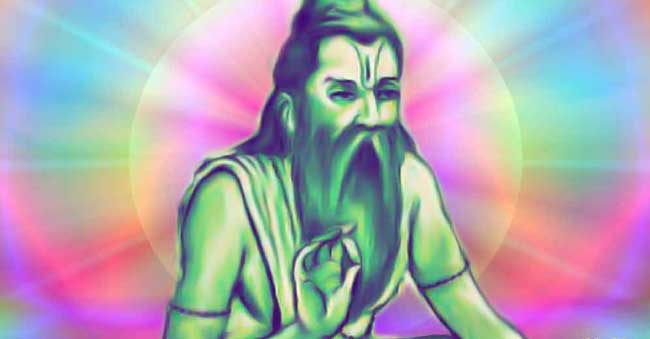
Immunity to inner-self is only through spiritualism
No one would ever harm themselves, until and unless they are mentally ill or under some influence. Our brain doesn’t allow our physical body to get hurt. Even if we force ourselves, the pain-receptors infuse pain and stop us from tormenting our body. This clearly shows how the functioning of our brain acts as an immune system to our physical health.
But what about the immunity to our thoughts? How could we limit our thoughts to drive us only on a righteous path? How can we stop ourselves from being victims of lust and sexual thoughts? How can we stop ourselves from committing crimes? The answer lies with us. Just as our conscious mind is fed with the knowledge that helps us to react in case of a threat/danger, our inner-self also needs to be fed.
Our inner-self thrives on positive energy. It is through spiritualism we can acquire the positivity in life. When we acknowledge that the God is everything, we are humbling bending in front of the Almighty, waiting for his blessing. In the company of God, one can restrict themselves from being a victim of any kind of desires. On visiting a temple, one is often welcomed by a warm feeling. The temple premises are filled with positive energy. The chants, prayers, and bhajans keep the temple environment lively. Though this environment feels noisy, with one’s involvement, one can see the lord in the deep chanting and prayers of the devotees.
Spiritualism is far different from religion. Spiritualism talks about various levels of energies that co-exist with nature, while religion talks about rules that need to be followed. In spiritualism, every soul is treated as an ‘energy’. With the attainment of higher energy levels (positivity), one can be immune and free from the negative thought process. After all, the nature of the thought is defined by the type of energies we perceive. We can’t experience pleasant thoughts while watching a horror film, nor a sensual thought while getting treated on a hospital bed.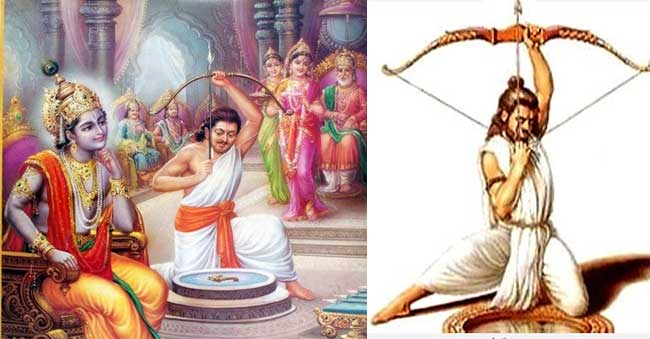
The incident where conceit of Arjuna was resolved by Krishna!
Though it is very clear that the God is always with us in the form of our thoughts (through inner-self) and in nature, even the followers of the Lord put up questions at times. A small question raised in the mind of Arjuna who was proud of his great-warrior abilities. He felt there is no need to give Krishna, the acclaimed credit as ‘Paramathma’ while he is the one who is completely indulging in everything he is doing.
The story unfolds before the day of ‘Swayamvar’ for Draupadi marriage. According to the Swayamvar, whoever wins the challenge would marry Draupadi. A fish was placed on a rotating wheel on a pole. And below the pole, there was a pan of water. The challenger has to hit the eye of the rotating fish by looking at its reflection in the pan of water below the pole.
Knowing the difficulty of the challenge, Arjuna was tensed on the night before the Swayamvar. Arjuna and Krishna were seriously discussing how to win the task. Krishna started advising Arjuna on how to take the position before shooting the arrow and asked him to keenly keep a watch on the rotating fish’s eye. Already tensed Arjuna got furious and anguished with Krishna’s advice. He was expecting Krishna to do some sort of miracle that could help him to win the Swayamvar. In this fit of rage, Arjuna asked Krishna with a hint of conceit that, ‘If I do everything, what would you be doing?’
Krishna started smiling after hearing Arjuna’s question. He went on to say, ‘Arjuna, while you concentrate on the eye of the fish, I shall ensure that the water in the pan remains still without any ripples, thereby making the reflection ‘still’ on water.’
Realizing his foolishness, Arjuna realized the involvement of the Lord in his every action; past, present, and future, Arjuna begged for forgiveness from the Paramathma. The reason for Arjuna’s enlightenment is also because of his ability to understand the importance of a ‘still water’ in order to see the reflection of the fish’s eye. It is because of this ability, Arjuna was able to understand the mystical magic of Lord Krishna. Similarly, many people fail to realize the existence of God in various forms due to their lack of faith in him.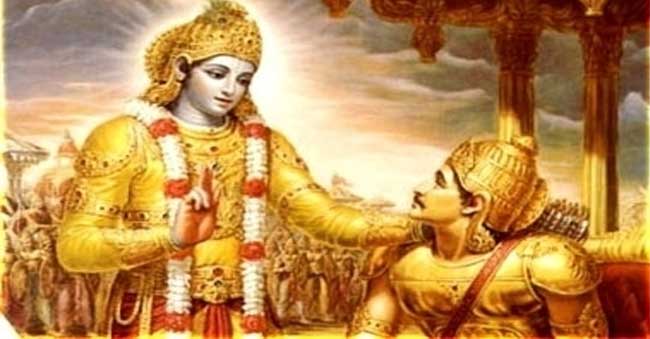
Questions that will never be answered by Science!
The Big Bang theory is currently considered to be the possible explanation for the expansion of the universe. In brief, according to the Big Bang theory, around 13.7 Billion years ago, the whole matter was condensed in an infinitely dense tiny point. With time, it started to expand and expand and expand on what we see today. The earth, the 8 planets, sun, solar system and the whole universe have evolved from that infinitely tiny point.
But the question is from where did that infinitely tiny point come from? How did the earth manage to place itself at an optimum distance from the sun? And why is that only on earth we have a highly calculated, precise environment that suits the existence of life?
And the famous question, from where did the first humans come from? How did they manage to give birth to the first child without any medical facilities? These questions boggle our minds every time and then. But finding truths to them would be nothing short of idiocy.
Maybe a hint of philosophy, a spiritual talk and a casual walk with a ‘true guru’ could lead us to Nirvana, if not to the answers to the questions. After all its ‘Nirvana’ we strive for, if not in your young days, but surely towards the later days!
Singing off!

